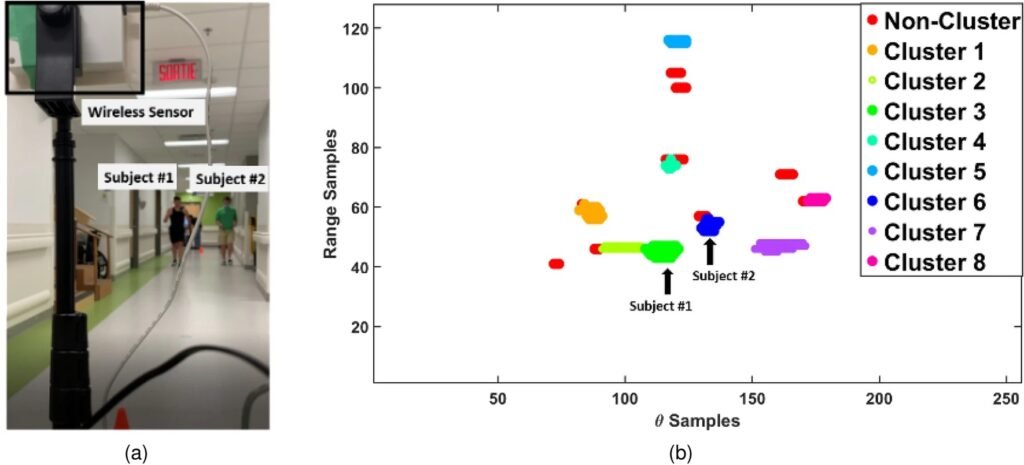Researchers at the University of Waterloo have developed a contactless radar system that uses artificial intelligence to monitor subtle changes in a person’s health. Unlike wearable devices that require physical contact or regular charging, this system operates remotely by analyzing how radio waves bounce off the human body. It can detect small shifts in movement, breathing, and other physiological signals, offering a noninvasive way to track health over time.
The radar system works by sending low-power radio signals toward a person and interpreting the reflections using machine learning algorithms. These reflections contain detailed information about body motion, including patterns that may indicate fatigue, stress, or early signs of illness. The system is sensitive enough to pick up micro-movements such as chest expansion during breathing or slight posture changes, which can be linked to overall wellness.
One of the key benefits of this technology is its ability to operate continuously without requiring user interaction. It can be installed in homes, clinics, or eldercare facilities to monitor individuals passively and alert caregivers to potential health concerns. The researchers envision applications ranging from chronic disease management to mental health tracking, especially for people who may struggle with wearable compliance.
The AI component plays a critical role by learning to recognize patterns associated with different health states. Over time, the system can build personalized profiles and detect deviations that might signal a problem. For example, a change in breathing rhythm or movement frequency could prompt further evaluation, even before symptoms become noticeable.
The team is working to refine the system’s accuracy and explore integration with smart home platforms. They also plan to expand its capabilities to monitor multiple people in the same space and distinguish between individuals. Privacy is a central focus, as the system does not capture images or audio, relying solely on motion data.
Article from the University of Waterloo: AI-radar system tracks subtle health changes
Abstract in Scientific Reports: Non-contact, non-visual, multi-person hallway gait monitoring

